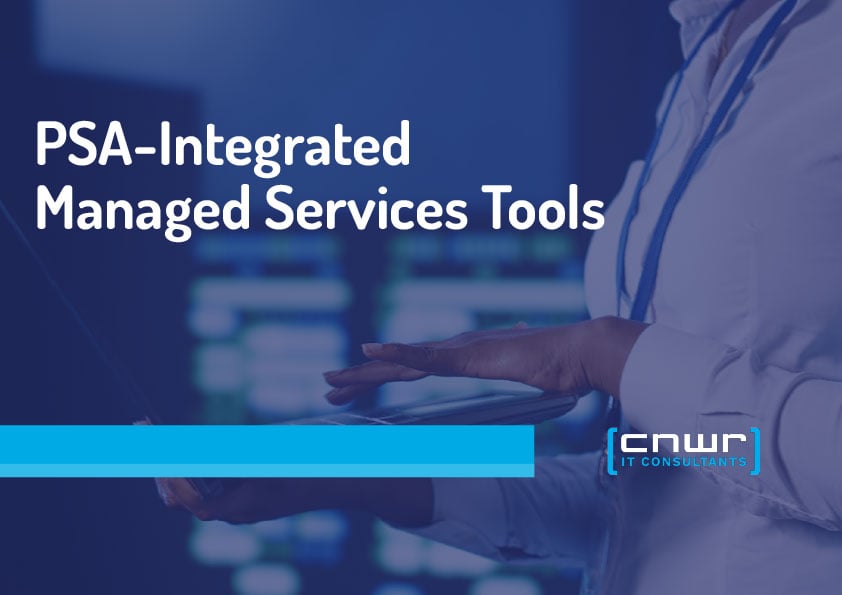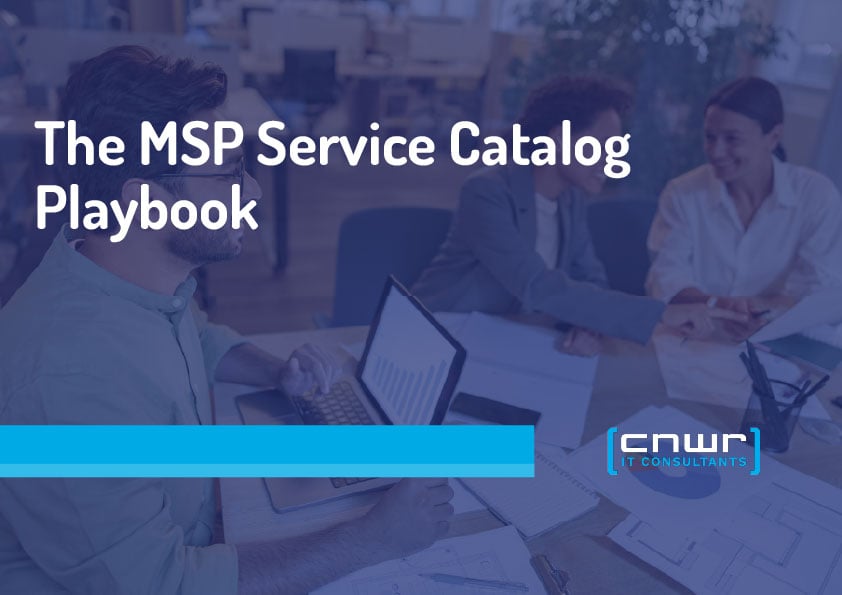Data retention policies might sound about as exciting as watching paint dry, but here's the thing...mess this up, and you could be looking at regulatory fines that make your quarterly budget look like pocket change.
Managing long-term retention policies doesn't have to feel like navigating a bureaucratic minefield, especially when you have the right MSP backup solutions in your corner.
Table of Contents
- What Are Long-Term Retention Policies and Why Do They Matter?
- The Compliance Challenge: Why Your Business Can't Afford to Wing It
- How MSPs Transform Your Data Retention Strategy
- The Benefits That Actually Move the Needle
- Challenges That Keep Business Leaders Up at Night
- Making It Work: Your Path to Bulletproof Data Management
- Partner with CNWR for Strategic Success
- Key Takeaways
- Frequently Asked Questions
What Are Long-Term Retention Policies and Why Do They Matter?
Long-term retention policies are your organization's formal rules about what data to keep, where to store it, and how long to preserve it. Think of them as the blueprint that determines whether that email from 2019 gets archived in cold storage or permanently deleted. These policies specify retention periods based on business requirements, regulatory mandates, and operational needs.
The distinction between backup and archival becomes crucial here. While backups focus on recovering from disasters or system failures, archives ensure older data remains accessible for specific periods, even when it's no longer actively used. Your backup might restore last week's files, but your archive preserves records from five years ago that auditors suddenly need.
Consider healthcare organizations dealing with HIPAA requirements, or financial firms navigating Sarbanes-Oxley compliance. These aren't suggestions...they're legal obligations with serious consequences for non-compliance. A well-crafted retention policy addresses what data requires preservation, why it needs archiving, where archived data lives, and who can access it.
The complexity multiplies when you factor in different data types. Critical business data might need daily backups with seven-year retention, while less sensitive information follows quarterly schedules. Each dataset requires its own lifecycle management strategy, creating a web of policies that can quickly become overwhelming without proper management tools.
The Compliance Challenge: Why Your Business Can't Afford to Wing It
Regulatory compliance isn't just about avoiding fines, though those can be substantial. GDPR violations can cost up to 4% of annual revenue, while HIPAA breaches average $4.35 million per incident. But the real cost often lies in reputation damage and lost customer trust.
Different industries face unique challenges. Healthcare providers must preserve patient records while ensuring data privacy. Financial institutions balance transparency requirements with security needs. Even seemingly simple businesses often discover they're subject to multiple overlapping regulations.
The challenge intensifies with the sheer volume of modern data creation. Your organization generates exponentially more information than it did five years ago. Email communications, customer interactions, financial transactions, and operational logs all require careful categorization and appropriate retention schedules.
Manual management becomes impossible at scale. Tracking retention periods across multiple systems, ensuring secure deletion when required, and maintaining audit trails demands automation. Without proper systems, organizations risk keeping data too long (creating privacy liabilities) or deleting it too early (violating compliance requirements).
How MSPs Transform Your Data Retention Strategy
Managed Service Providers bring specialized expertise and enterprise-grade tools to your retention policy challenges. Rather than building internal capabilities from scratch, MSPs offer proven frameworks developed across hundreds of client implementations.
MSPs understand the nuances of different compliance requirements. They've navigated GDPR, HIPAA, SOX, and PCI-DSS implementations, understanding how these regulations interact and overlap. This expertise prevents costly mistakes during policy development and implementation.
Technology automation forms the backbone of effective MSP solutions. Advanced platforms like MSP360 Managed Backup Service allow granular retention control, setting policies per machine or through bulk deployment. These systems automatically enforce retention schedules, trigger secure deletion, and maintain detailed audit logs without manual intervention.
Storage optimization becomes another key advantage. MSPs leverage multiple storage tiers, from high-speed local storage for active data to cost-effective cloud archives for long-term retention. Amazon S3 Glacier, Microsoft Azure Blob Storage, and Google Nearline provide secure, compliant storage at a fraction of on-premises costs.
The strategic value extends beyond mere compliance. As outlined in our comprehensive guide From Options to Outcomes: The Ultimate Guide to Managed Services Tools, the right MSP partnership transforms technology challenges into competitive advantages. Your retention policies become enablers of business growth rather than compliance burdens.
The Benefits That Actually Move the Needle
Working with MSPs for retention policy management delivers measurable business value across multiple dimensions. Cost optimization tops the list. Proper lifecycle management eliminates unnecessary storage expenses while ensuring compliance. Organizations typically reduce storage costs by 30-50% through intelligent tiering and automated deletion.
Risk mitigation provides another significant benefit. Professional MSPs implement robust access controls, encryption, and audit logging. They understand that data security isn't just about preventing breaches...it's about maintaining customer trust and business continuity. Detailed audit trails support e-discovery requests and regulatory inquiries without scrambling to reconstruct missing information.
Operational efficiency improves dramatically when retention policies work seamlessly in the background. Your team stops worrying about compliance deadlines and focuses on strategic initiatives. Automated systems handle routine tasks like backup scheduling, version management, and secure deletion.
Scalability becomes effortless with cloud-based solutions. Whether your business grows rapidly or contracts during economic uncertainty, MSP-managed retention policies adapt without service disruption. Storage resources scale dynamically, and retention schedules adjust to changing business requirements.
Strategic guidance adds long-term value beyond immediate compliance needs. Experienced MSPs help develop retention strategies that align with business objectives. They anticipate future regulatory changes and ensure your policies remain effective as your organization evolves.
Challenges That Keep Business Leaders Up at Night
The consequences of inadequate retention policies extend far beyond compliance fines. Data breaches become more damaging when organizations can't quickly identify what information was compromised or demonstrate proper security controls. Incident response becomes chaotic without clear data inventories and access logs.
Legal discovery becomes a nightmare when retention policies are inconsistent or poorly documented. Courts expect organizations to produce relevant documents efficiently. Missing data or inability to demonstrate proper retention practices can result in sanctions, adverse inferences, or case dismissals.
Operational risks multiply when different departments maintain separate retention practices. Sales keeps customer communications indefinitely while IT deletes system logs quarterly. This fragmentation creates blind spots and compliance gaps that regulators and auditors quickly identify.
Storage costs spiral out of control without proper lifecycle management. Organizations frequently discover they're paying premium prices for inactive data that should have been archived years ago. The financial impact compounds over time, creating significant budget pressure.
Business continuity suffers when backup and archive strategies aren't aligned. Critical historical data becomes inaccessible during emergencies, hampering recovery efforts and extending downtime. The opportunity cost of lost productivity often exceeds the direct costs of system failures.
Making It Work: Your Path to Bulletproof Data Management
Successful retention policy implementation requires a systematic approach that balances compliance requirements with business objectives. Start by conducting a comprehensive data inventory. Catalog all information types, understand their business value, and identify applicable regulatory requirements.
Develop clear retention schedules based on legal obligations and business needs. Critical financial records might require seven-year retention, while routine communications need only three years. Document the rationale behind each decision to support future audits and policy updates.
Choose storage solutions that align with access patterns and cost requirements. Frequently accessed data belongs on high-performance systems, while archives can leverage cost-effective cloud storage. MSPs help optimize this balance through intelligent tiering and automated migration policies.
Implement robust access controls and audit logging from the beginning. Not every employee needs access to archived data, and every access should be logged for security and compliance purposes. Role-based permissions ensure the right people have appropriate access without creating security vulnerabilities.
Test your policies regularly through controlled exercises. Verify that retention schedules work correctly, secure deletion functions properly, and audit logs provide necessary detail. Regular testing identifies problems before they become compliance issues or operational emergencies.
Partner with CNWR for Strategic Success
Managing long-term retention policies doesn't have to be a solo journey fraught with compliance pitfalls and technical complexity. The organizations that thrive are those that partner with experienced MSPs who understand both the technical requirements and business implications of effective data management.
CNWR brings decades of experience helping businesses navigate retention policy challenges across multiple industries. We don't just implement technology...we develop strategic partnerships that align your data management practices with your business objectives. Our proven frameworks and automated solutions eliminate the guesswork while ensuring bulletproof compliance.
Your data retention strategy should enable growth, not constrain it. When policies work silently and smoothly in the background, your team can focus on innovation and customer service instead of compliance firefighting.
Ready to transform your data retention strategy from a compliance burden into a competitive advantage? Contact CNWR today to discover how our managed backup solutions can protect your business while supporting your growth objectives.
Key Takeaways
- Long-term retention policies are formal rules governing what data to keep, where to store it, and how long to preserve it, with different requirements for backup versus archival purposes
- Compliance failures can result in substantial fines, reputation damage, and legal complications, making proper retention policies essential for risk management
- MSPs bring specialized expertise, enterprise-grade automation, and cost-effective storage solutions to retention policy challenges
- Benefits include 30-50% storage cost reduction, improved operational efficiency, enhanced security, and scalability without service disruption
- Common pitfalls include fragmented departmental practices, spiraling storage costs, legal discovery complications, and business continuity risks
- Successful implementation requires a comprehensive data inventory, clear retention schedules, appropriate storage solutions, robust access controls, and regular policy testing
Frequently Asked Questions
- What's the difference between backup and archival retention policies?
Backup retention focuses on disaster recovery and system restoration, typically keeping recent data for shorter periods. Archival retention preserves older data for compliance and business requirements, often spanning years or decades. While backups help recover from last week's server crash, archives ensure you can access customer records from five years ago when auditors come calling. - How can MSPs help reduce my data storage costs while maintaining compliance?
MSPs implement intelligent storage tiering that automatically moves data between cost-effective storage levels based on access patterns and age. They also enforce automated deletion schedules that eliminate unnecessary data retention, typically reducing storage costs by 30-50% while ensuring all compliance requirements are met through proper lifecycle management. - What happens if my business fails to implement proper retention policies?
The consequences can be severe: regulatory fines up to 4% of annual revenue under GDPR, average breach costs of $4.35 million for HIPAA violations, legal sanctions during discovery processes, operational chaos during emergencies, and significant reputation damage. Beyond financial impacts, poor retention policies create operational inefficiencies and strategic disadvantages that compound over time.

-%20MSP%20Backup%20Solutions%20Guide.jpg)


